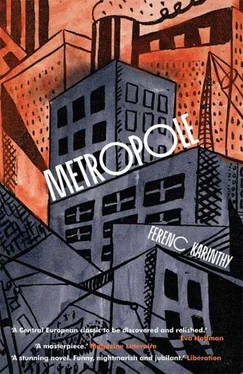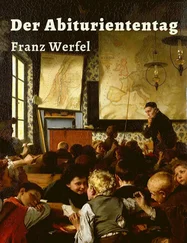The metro map was behind a pane of glass and gave a diagrammatic sketch of the underground network with various colours to signify individual lines and to indicate various stations and interchanges, the lines dense and generally concentric or radiating as they crossed over or flowed into each other. There was a kind of keyboard underneath, with, it seemed, a button for each station: when people pressed one of them a line was suddenly illuminated. He waited his turn, for here too there was a considerable crowd, then pressed a few buttons at random. There were clearly a number of routes directly leading here, while others required two or three changes, but since the topological map showed only the relationship between the various metro stations and nothing of the streets and squares above, he found it impossible to locate anything, For even if he had been able to read the names of the stations he wouldn’t have been able to tell where they were in relation to all the other unfamiliar places in this vast stone-deaf vacancy. The station he was currently at was indicated by a red circle that was rather more smeared than the others because of the great number of fingers tracing routes from it. He was, of course, as incapable of reading the name as he had been of reading anything else and could only make out that the station was located near the bottom left hand corner of the map at the intersection of one of the radiating and one of the concentric lines, and that it seemed to be roughly halfway between the inner city and the outskirts; in other words that he was in one of the south-westerly suburbs. That was if he could safely assume that north was at the top, and so forth.
He went back out into the street: a little further off they were building a skyscraper higher than any he had so far seen. Craning his neck, Budai counted sixty-four floors so far, but there were clearly more to come. An enormous number of people were working on the steel framework and half-completed walls, swarming like ants over the scaffolding, the structure practically black with them, ascending and descending on pulleys that also carried materials, prefabricated components and enormous panels — the proportions of the building inspiring not so much admiration as fear, as if the lot could at any moment collapse around his head and bury him for ever… But his purpose was not to stand and stare. He went into the nearest grocery and waited patiently like the other customers. And though they did not understand him here either, he refused to shift or give way until they had measured out for him whatever he pointed at. He then had to stand in another queue to receive his cold meat, his butter, cheese and bread, and then in another for some roast fish he fancied. Having only been given a receipt for this he had to stand in line at the till once more. He paid, not knowing how much he had given, put away the change, then stood at the food counter again. The whole process took half an hour.
It was the fat doorman with his gold-braided cap on duty at the hotel again: Budai wondered when the man slept. He received his key the same way by writing down the number 921, carefully storing the piece of paper in his top pocket. He noted which of the lifts was being operated by the blonde attendant — it was the middle one — and he joined that queue. The girl was reading and did not look up as the passengers called out their floors but simply pressed the appropriate buttons. It was only when Budai, unable to tell her it was the ninth floor, touched her on the arm that she looked up. She gazed up at him, blinking one or twice, as if waking from a dream, then the door opened and he stepped out.
They had tidied his room while he was out, swept the floor and made the bed. He found his pyjamas under the blanket and his slippers in the bedside cupboard. He was frightened for a second in case they regarded him as a permanent guest, but he immediately dismissed the thought: after all, it is not the job of the staff to know that, what do they know…? He opened his packages and fell greedily to eating, slicing the bread with his penknife and making sandwiches. Everything tasted strange, different from what he was used to at home, somehow sweeter, the meat, the bread, the cucumber and even the fish. He carefully packed away what remained and put it in the window. At last he was well fed, all he needed now was coffee to finish the meal. But he did not feel like making a special trip downstairs for it. He would rather take a short rest. So, with a touch of self-satisfaction for filling his stomach despite all the difficulties, he kicked off his shoes and stretched out on the fully made-up bed.
He can only have snoozed two or three minutes before he suddenly sat up, his heart beating with anxiety. What was wrong with him? Was he mad? They were waiting for him in Helsinki where the conference would be in full swing by now! And he was due to deliver his speech, possibly on the first or second day, and, for all he knew, he might have been drafted onto this or that committee, and they would not understand why he wasn’t there. What was he doing here, and, furthermore, where was here , what town, what country, what part of the world, what godforsaken spot on the globe? He tried once more to think through the whole impossible set of events: he trusted in logic, in the highly developed power of scientific method and its way of reaching conclusions, and, not least, in his own experience of travel, since he had been travelling ever since his student days. But however he examined the events of the last twenty-four hours he could not work out what he should have done differently, whom he might have consulted, what possible alternatives existed. And while the misunderstanding that had resulted in his being here would, no doubt, be resolved sooner or later, at which point he could immediately leave and move on, he felt somewhat at a loss for now: he was without friends, acquaintances, indeed documents, and to all intents and purposes, utterly on his own, in an unknown city of whose very name he was ignorant, where no one spoke any language that he could understand even though he knew a great many languages, and where he had yet to find anyone with whom he might exchange a word or two.
He tried to piece together such fragments of knowledge about the place as he had so far managed to gather. It must be a large city, that much was obvious, a metropolis, a cosmopolitan city he had never before visited. For the time being he could not even begin to place it on the globe or tell how far it lay from home or in what direction. He might, it occurred to him, have been able to attempt a rough calculation as to the number of hours they had travelled by seeing how much his beard had grown on the plane while he was asleep. But he hadn’t thought of it last night when he had arrived and shaved. He was probably feeling a little woozy at the time and now he simply couldn’t remember how much hair he had scraped from his jaw… It was a densely populated city, that was clear enough, more populous than any he had known, though what ethnicity, what colour constituted the majority, was hard to determine going by what he had seen so far. The most conspicuous feature of the place was that people did not seem to speak foreign languages here, none at least that he was familiar with, not even in a hotel as enormous as this, only their mother tongue. And that sounded peculiar, utterly unlike anything else, almost mere gabble. The written version was a vacuous, incomprehensible jumble. Nor was the weather of any help: dry, cold, wintry, exactly like February back home when he left. As for the grocery shop, nothing in the items on sale gave a clue to the whereabouts of the country, being pretty much what was found anywhere, meaning a range of cold and ready-to-cook meats, cheeses, apples, lemons, oranges, bananas, preserves, jams in jars, fruit juice, coffee, sweets, sea-fish and so on. There was no way of telling what was local, what imported. Items of clothing offered nothing different from the usual garments found in the rest of the civilised world, products of boutiques and department stores, differing only in quality, each individual item straight out of some international catalogue, ready to wear. It added up to little more than nothing: it was an equation without known quantities.
Читать дальше












